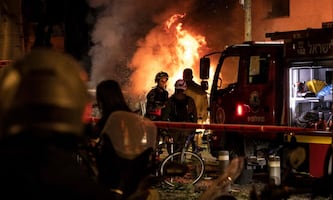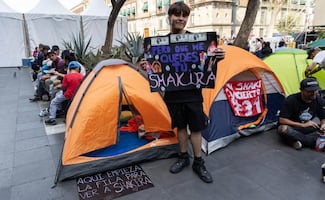Más Información

FGR confirma entrega del cuerpo de "El Mencho", exlíder del CJNG a familiares; se realizaron pruebas genéticas para identificarlo

México ofrece protección consular a connacionales en Medio Oriente; aquí la lista de países que cerraron espacio aéreo

Cae Jorge Yáñez, excontador de Emilio Lozoya en Querétaro; es acusado por defraudación de 28 mdp en el sexenio de Peña Nieto
French U.N. Ambassador Francois Delattre and British U.N. Ambassador Matthew Rycroft said they looked forward to working with Haley. The United States, Britain and France, along with Russia and China, are permanent veto-wielding members of the U.N. Security Council.
After her meeting with Guterres, a U.S. official said they had "a good and productive conversation about ways they can work together to reform the U.N."
Haley told reporters, "Everything that's working, we're going to make it better, everything that's not working we're going to try and fix, and anything that seems to be obsolete and not necessary we're going to do away with."
According to a draft executive order published by The Daily Beast, Trump wants a committee - including his secretary of state, attorney general and director of national intelligence -to carry out a one-year review of U.S. funding to international organizations with the aim of almost halving voluntary funding.
The United States is the largest contributor to the United Nations, paying 22 percent of the US$5.4 billion core U.N. budget and 28 percent of the US$7.9 billion U.N. peacekeeping budget. These are assessed contributions - agreed by the U.N. General Assembly - and not voluntary payments.
U.N. agencies, such as the U.N. Development Programme, the children's agency UNICEF, the World Food Programme and the U.N. Population Fund, are funded voluntarily.
Last year, Trump took to Twitter to disparage the 193-member world body after the United States abstained in a Dec. 23 U.N. Security Council vote, allowing the adoption of a resolution demanding an end to settlement building by U.S. ally Israel.
Trump, who had called on President Barack Obama's administration to veto the resolution, warned that "things will be different" at the United Nations after he took office on Jan. 20.
Noticias según tus intereses
[Publicidad]
[Publicidad]











